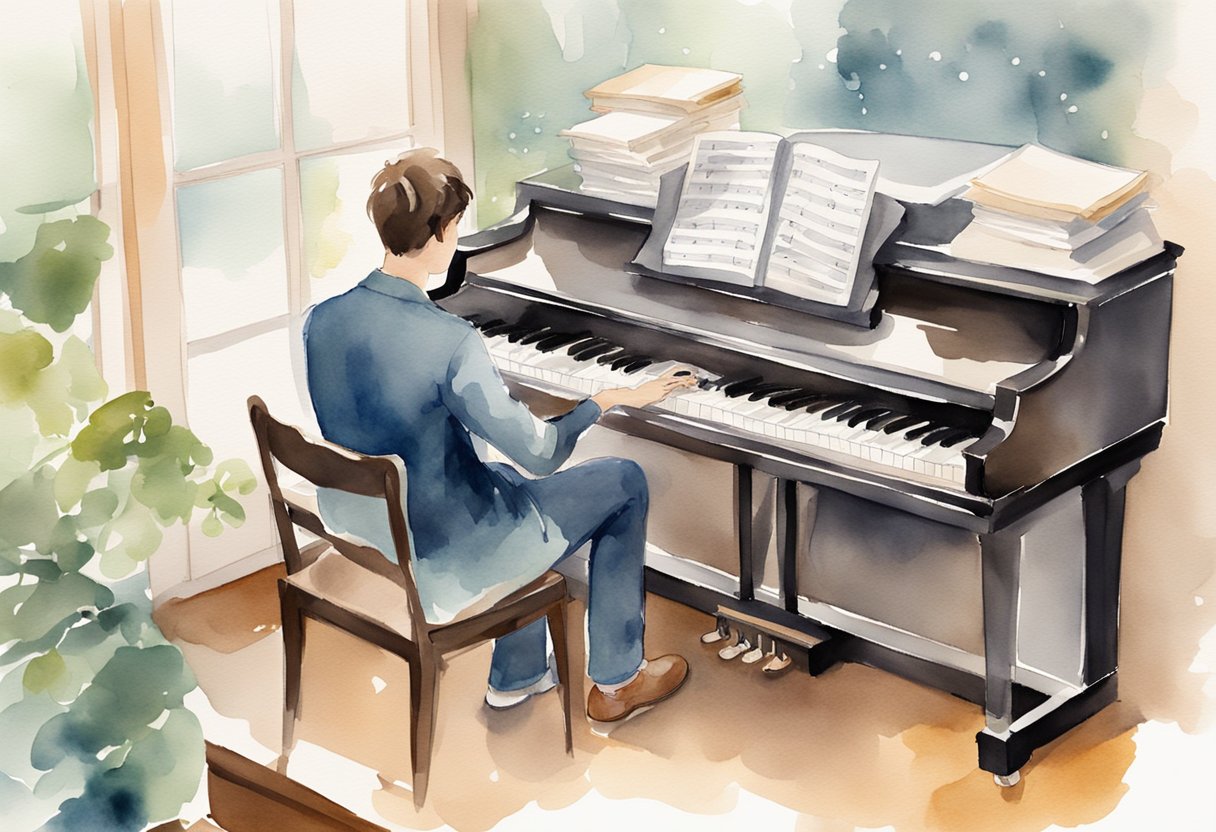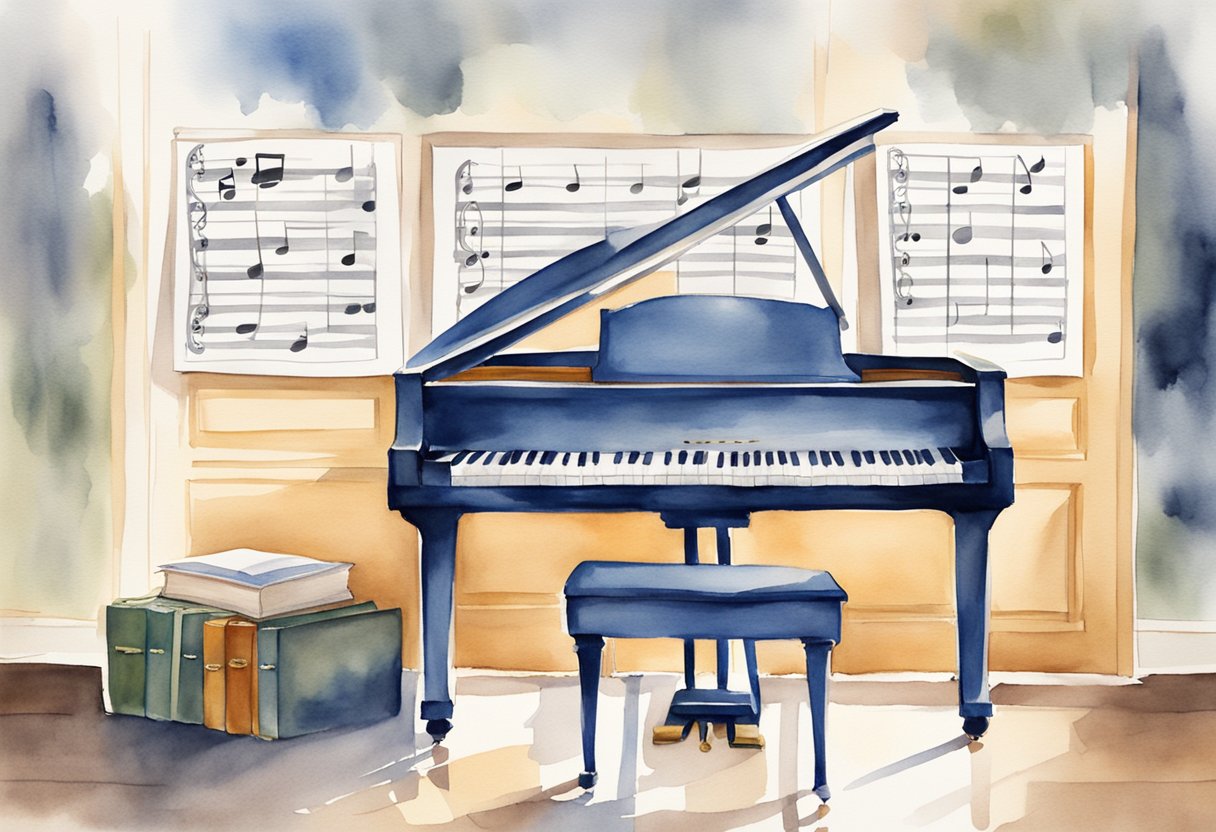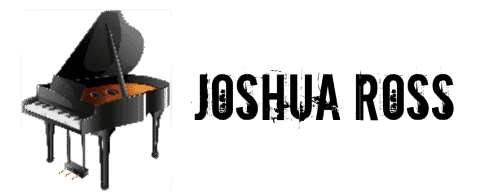As an Amazon Associate I earn from qualifying purchases.
Learning to play the piano on your own is a journey brimming with challenges and rewards, and in today’s digital world, it’s more accessible than ever. Self-teaching requires motivation and discipline, but if approached with dedication, it can be incredibly gratifying.
The key to success lies in developing a structured practice schedule and setting clear, achievable goals. By leveraging the wealth of online resources, you can guide yourself through the basics of piano theory, technique, and repertoire.
Want to Learn Piano?Click Here

Programs, like Learn Piano in Just 21 Days, promise efficient learning curves by presenting a concise timeframe to grasp piano fundamentals. Between these options and the communal knowledge shared on forums and platforms such as Music: Practice & Theory Stack Exchange, you have access to a community of fellow self-learners and their valuable insights.
To optimize your learning experience, consider investing in a good quality keyboard or digital piano that suits your budget and space constraints, and start immersing yourself in music that inspires you.
Getting Started with the Basics

Embarking on the journey to learn piano on your own can be thrilling. Setting the foundation involves recognizing how you learn best, creating a conducive practice environment, and finding resources that resonate with your learning style.
Understanding Your Learning Style
To master piano effectively, it’s crucial to comprehend how you absorb information. Some flourish through visual aids like videos or written music theory, while others benefit from auditory examples or hands-on practice.
Reflect on how you’ve learned other skills successfully, and apply similar strategies here. For instance, if YouTube tutorials helped you learn to cook, they might be the perfect way to grasp basic music theory for piano.
Setting Up Your Practice Space
Your practice space is your personal concert hall, so make it count. Ensure it’s somewhere you can focus without interruptions, with everything you need within reach.
This includes your piano or keyboard, books, possibly a stand for your tablet or phone for following along with video tutorials, and a comfortable, adjustable bench. Remember, the right lighting and a quiet environment can heighten your concentration and make practice sessions more efficient.
Choosing the Right Resources
With the plethora of available resources, selecting the most suitable ones is pivotal. Let’s break it down:
- Books: Offer comprehensive coverage of music theory and practice exercises. Prices range from $10 to $50+. If you’re an adult I suggest the Alfred or Hal Leonard Methods. If you’re younger, you may want to star with something like Music Tree, or the John Thompkins Method.
- Video Tutorials: Free on platforms like YouTube, or paid subscriptions to dedicated tutorial websites. Channels like PianoFrenzy offer practical practicing tips as well as simple tutorials to get you started.
- Music Theory Websites: Some offer free lessons; others charge a fee for more advanced courses.
| Resource Type | Cost Estimate | Pros | Cons |
|---|---|---|---|
| Books | $10 – $50+ | Structured learning | Less interactive |
| YouTube Tutorials | Free | Visual and auditory examples | Quality varies |
| Paid Video Courses | $10 – $30/month | Tailored programs | Ongoing cost |
| Music Theory Sites | Free – $+/month | Comprehensive; often includes exercises | Requires self-discipline to follow |
Pick what appeals to your learning style, aligns with your goals, and respects your budget. It’s okay to combine different types to build diverse skills in reading, rhythm, and performance.
Developing Your Piano Skills
Learning to play the piano without a formal teacher is a commendable and achievable goal. Tailoring a practice routine, mastering techniques for diverse pieces, and learning from feedback are all pivotal elements in advancing your piano skills.
Establishing a Practice Routine
Creating a consistent practice routine is the backbone of progress in piano playing. Dedicate a specific time each day for practice and set realistic goals for each session.
For example, beginners could aim for 20-30 minutes of daily practice, while more experienced players might schedule 1-2 hours. A well-structured routine should include warming up with scales and arpeggios, working on new pieces, and revisiting old repertoire to keep your skills sharp.
- Monday to Friday: Scales, Chords, Piece Learning
- Saturday: Review and strengthen weak spots
- Sunday: Free play and improvise
Improving Technique and Playing Pieces
Improvement in piano technique hinges on tackling pieces that challenge you without causing frustration or injury. Incorporate a variety of music genres, such as classical and jazz, to develop a well-rounded skill set.
To avoid bad habits, use slow, deliberate practice and refer to YouTube videos or piano apps for visual guidance. As your confidence grows, you’ll find it easier to leave your comfort zone and tackle more complex rhythms and melodies.
Technique Focus:
- Legato and staccato: Ensure you can transition smoothly between these styles.
- Dynamics: Practice playing with varied volume and intensity.
Learning from Mistakes and Seeking Feedback
Active self-assessment and recording your playing can be helpful, as it allows you to hear your progress and pinpoint specific areas to improve. Joining online forums or social media groups offers an opportunity to receive feedback and learn from others’ experiences. A
Additionally, apps like Synthesia can provide visual feedback and offer a fun way to learn new pieces or play by ear.
Seeking Feedback Example:
- Post a video of your playing online.
- Ask specific questions regarding technique or interpretation.
- Implement the feedback in your next practice session.
Hello & thanks for stopping by! I’m a professional concert pianist and piano instructor. In the United States, I’ve given successful performances in several places including New York, Florida, Connecticut, & New Jersey, I have also performed internationally in Italy and made my Carnegie Hall debut in 2014. I enjoy blogging about the piano, the art of performance, general music, current events and the latest in music production.
